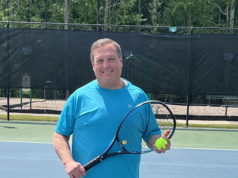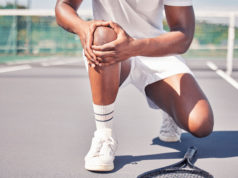By Mark Kovacs, Ph.D., CTPS, MTPS, Kovacs Institute
At our Institute, we work with some of the best professional athletes on the planet, as well as top executives and performers. The one thing they all have in common is the need to maximize sleep because of a challenging schedule and excessive/unique travel. I wanted to provide you with some tips and techniques that we use in our sleep protocols. You can use these techniques to help improve your physical and mental recovery:
- Stick to a regular sleep schedule: If this is possible, it is ideal. However, nearly everyone I work with has unique schedules. For example, MLB baseball All-Stars who play 162-game seasons, or top professional tennis players who travel all over the world during an 11-month season.
- Create a sleep-friendly environment. Your bedroom should be quiet, cool, and dark. Use blackout curtains, earplugs, or a white noise machine to block out any disruptive noise. Keep the temperature between 60- and 67-degrees Fahrenheit for optimal sleep.
- Establish a relaxing bedtime routine. This helps to signal your body that it’s time to wind down. This might include taking a warm bath, reading a book, or doing some gentle stretching or yoga.
- Limit caffeine and alcohol. Caffeine and alcohol can disrupt sleep, so it’s best to avoid them in the hours leading up to bedtime. We perform caffeine tolerance tests with our clients to help determine when and how to reduce caffeine as they get closer to bedtime. Alcohol also is restricted as much as possible.
- Avoid electronics before bedtime. The blue light emitted by electronic devices can interfere with sleep by suppressing the production of melatonin, a hormone that helps regulate sleep. Try to avoid using electronics for at least an hour before bedtime. Also, I recommend blue light blocking glasses for all our clients to use 60-90 minutes before bed.
- Use relaxation techniques. Techniques such as deep breathing, meditation, and progressive muscle relaxation can help reduce stress and promote relaxation, making it easier to fall asleep.
In summary, these techniques have some solid research support and we have implemented all of these in different ways with hundreds of athletes and executives to improve health, performance, wellness, and recovery.
Sleep Aids
After you’ve tried all these techniques, other options that may be considered with the help of a trained professional could include non-prescription and prescription sleep aids. The most common non-prescription supplementation that have some solid research support include the following:
Melatonin is a hormone that regulates sleep-wake cycles. Taking a melatonin supplement can be effective for improving sleep quality and reducing the time it takes to fall asleep.
Magnesium is a mineral that is involved in many bodily functions, including sleep regulation. Taking a magnesium supplement can help improve sleep quality and reduce insomnia, particularly in individuals with low magnesium levels.
GABA (gamma-aminobutyric acid) is a neurotransmitter that is involved in promoting relaxation and reducing anxiety. Taking a GABA supplement may help improve sleep quality and reduce the time it takes to fall asleep.
Lavender is an herb that has been used for centuries for its calming and relaxation properties. Taking a lavender supplement or using lavender essential oil may help improve sleep quality and reduce anxiety.
Valerian root is an herb that has been used for centuries for its sedative properties. Taking a valerian root supplement may help improve sleep quality and reduce the time it takes to fall asleep.




